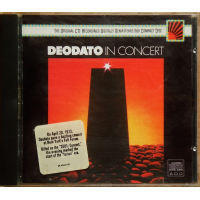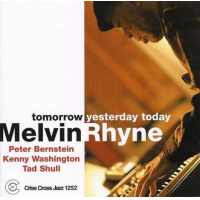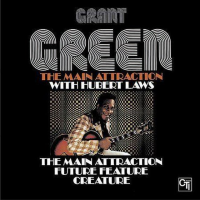Home » Jazz Articles » Liner Notes » Brad Mehldau: Your Mother Should Know
Brad Mehldau: Your Mother Should Know
The answer, more often than not, has turned out to be strangeness, a mode of originality that either cannot be assimilated, or that so assimilates us that we cease to see it as strange.
If we look at The Beatles and the multitude of artists who have been influenced by one or another facet of their oeuvre, this paradoxical recipe for longevity is one way to consider their ongoing footprint. For there is a good deal of strangeness to much of their music, particularly in the series of game-changing albums that begin with Rubber Soul through the release of their final record, Let It Be. In the concert program here, I chose to begin with "I Am The Walrus" as a way of underlining that quality from the beginning. It is not just John's Dadaist lyrics that are strange. The descending harmony of the song itself, right in the introduction, is unsettling.
There is of course an undisputed universality as well to The Beatles, heard in classics like "Yesterday " or "Hey Jude." Their music cuts across cultural and generational lines, as new listeners continue to discover it. There is an immediacy and integrity to their songs that draws everyone in. It's hard to imagine, for instance, someone not smiling at least a little when they listen to "Here Comes The Sun." Yet the dreamy refrain, Sun, sun, sun, here it comes, is a rhythmic oddball, with little lurches along the way—as if its harmonic progression got snipped with scissors here and there. It's full of joy and radiance, bringing everybody under the tent together, and yet impossible to clap along to, all at once.
Unlike in the progressive rock that began to appear in the following years though, these rhythmic quirks in The Beatles' music—and there are a fair share of them—never feel self-conscious, demanding our dutiful attention. They just happen along with everything else, and we accept them easily enough as part of the fabric of the music, without having to think, "It 's weird that I like this so much yet there's no simple way I could clap along to it." Another example of those rhythmic lurches can be heard in the second part on "She Said She Said," included here. It 's where Lennon intones, She said, " You don't understand what I've said" / I said, "No, no, no, you're wrong / When I was a boy / Everything was right..." The rhythmic hiccups fit together with the non sequitur conversation the lyrics report.
Much of The Beatles' strangeness has to do with very specific avenues they explored, ones which have become so assimilated into pop music that we no longer question their unorthodox nature—that is, unorthodox in a rock'n'roll setting. Certain gestures of theirs have long since become commonplace, reappearing in the songs of many other artists. Frumpiness, for one, had no place in rock music before The Beatles, but after "When I'm Sixty-Four," or "Maxwell's Silver Hammer," played on this set, it was possible to be mannered and even a bit stuffy, and still carry the torch of rock'n'roll.
In those songs, the atmosphere was called up from Paul McCartney's own English family upbringing, which included cabaret music, yet importantly, he was having fun with it, winking at it. After all, he wasn't really setting out to write strict cabaret, and part of the delight of "When I'm Sixty-Four" is that it goes down such an altogether different path from what has come thus far on the record. Context is everything on albums like Sgt. Pepper's Lonely Hearts Club Band and Abbey Road. Frumpiness appears alongside unabashed, "dirtier " rock'n'roll like the title track from Sgt. Pepper's... or "Come Together," but also, amen-inducing ballads like "Golden Slumbers," which ends my set here, or something truly sublime like "A Day In The Life." Context, or better said, a kind of constant recontextualizing, is a tacit subject of The White Album, which changes strategy and mood radically from track to track to dizzying effect. This upped the expressive ante for what was possible on a single rock album, and a record like Dark Side of the Moon from Pink Floyd fulfilled the promise. There's another feature, though, to "When I'm Sixty-Four" and "Maxwell's Silver Hammer," frumpiness notwithstanding, one that my longtime musical colleague and friend guitarist Peter Bernstein pointed out to me is in a big share of Beatles songs: they swing, in a manner. That is to say, their 8th notes are dotted, giving them a distinct feel that Bloom might say has "assimilated us." It 's such a part of The Beatles' music that we might not even take notice of it. It 's what propels a lot of their songs along though, giving them a distinctive kick. Just think of the jaunting rhythmic feel of "Penny Lane," "Fixing A Hole," or, included here, "Your Mother Should Know."
There are two other bands I know of who were making songs like this then, and I mention them because they've influenced me and rub off on the music here as well. The Pet Sounds/Sgt. Pepper's connection has been well-documented, and you can hear the same dotted feel on two Beach Boys classics from the same time, "God Only Knows" and "Good Vibrations." The Zombies began tracking the underappreciated Odyssey and Oracle just a month after Sgt. Pepper's was released, and that lilting rhythm is there in the first two tracks, "Care Of Cell 44" and "A Rose For Emily." Did Paul take a cue from "God Only Knows" on a track like "Penny Lane"? Did The Zombies in turn internalize key tracks from Sgt. Pepper's in a remarkably short time before going into the studio to record Odessey and Oracle? I wouldn't dare surmise with any certainty, but I tend to think, no: this was a moment in pop music where something was in the air, mysteriously, and they all caught it.
What was new as well in all those "swinging" songs from those three bands was a way of building the song around the piano, instead of the guitar—or some harpsichord-like variant of the piano. It gave the music a different kind of harmonic imprint, as it moved away from the bending blue notes of guitars towards a new variety of chordal progressions, often more reminiscent of Romantic-era classical music than rhythm and blues. Going forward, a new kind of melodrama in pop music became possible, heard in songs from artists like Queen and David Bowie. I included the encore of the set here, Bowie's early jewel, "Life on Mars?," to draw attention to this Romantic-tinged pianistic connection—hats off to Rick Wakeman who really nailed it on the original.
The Beatles paved the way for my first musical hero, Billy Joel, and another band that hit me hard when I was a kid, Supertramp. When I was getting started at the instrument, The Beatles were not on my radar yet, but a lot of the enduring piano-pop music I heard on the radio grew out of them. That music became part of my personality, and when I discovered The Beatles later it all tied together. Their music, and its wide influence on other artists, continues to inform what I do. I hope you enjoy the collection here as much as I enjoyed preparing and performing it.
Liner Notes copyright © 2026 Brad Mehldau.
Your Mother Should Know: Brad Mehldau Plays The Beatles can be purchased here.
Contact Brad Mehldau at All About Jazz.
Grammy Award winning jazz pianist Brad Mehldau has recorded and performed extensively since the early 1990s.
Track Listing
I Am the Walrus; Your Mother Should Know; I Saw Her Standing There; For No One; Baby’s in Black; She Said, She Said; Here, There and Everywhere; If I Needed Someone; Maxwell's Silver Hammer; Golden Slumbers; Life on Mars?.
Personnel
Brad Mehldau
pianoAlbum information
Title: Your Mother Should Know: Brad Mehldau Plays The Beatles | Year Released: 2023 | Record Label: Nonesuch Records
Tags
PREVIOUS / NEXT
Brad Mehldau Concerts
Brad Mehldau with the HR Big Band @ hr-Sendesaal
Hr-sendesaal - Hessischer RundfunkFrankfurt am Main, Germany
Support All About Jazz
 All About Jazz has been a pillar of jazz since 1995, championing it as an art form and, more importantly, supporting the musicians who make it. Our enduring commitment has made "AAJ" one of the most culturally important websites of its kind, read by hundreds of thousands of fans, musicians and industry figures every month.
All About Jazz has been a pillar of jazz since 1995, championing it as an art form and, more importantly, supporting the musicians who make it. Our enduring commitment has made "AAJ" one of the most culturally important websites of its kind, read by hundreds of thousands of fans, musicians and industry figures every month.




















